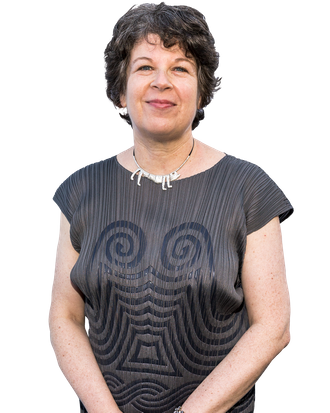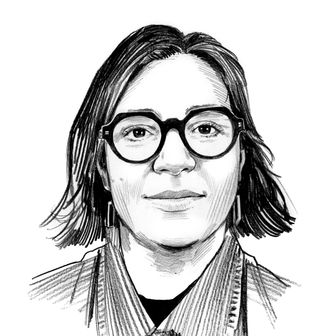
Depending on who you ask, Meg Wolitzer’s new novel, about female power and the conflicts and rewards of intergenerational feminism, is either “uncannily timely” (the Times) or a total “misread” of the current feminist mood (Bookforum). The Female Persuasion is Wolitzer’s 12th book, and as with others in her oeuvre, it follows the lives of women (and a few men) as they grow and struggle and thrive. The book centers on two women: Faith, a second-wave feminist described as “a couple steps down from Gloria Steinem,” and Greer, her protégée, a fourth-wave feminist. The two women meet in 2006, when Greer is a freshman in college, and the recent victim of a frat-party groping, a traumatic incident that awakens her interest in feminism. As nearly every review has noted, it is impossible to read the book without thinking about #MeToo and the broader conversation unfolding today, about abusive men and what feminists can and should do about them. Writing in The New Yorker, Alexandra Schwartz noted, “The risk for a novel that tries to capture the Zeitgeist is that the Zeitgeist is liable to shift at any moment. Indeed, the timeliness of Wolitzer’s subject, initially such a boon to the novel, ultimately deals it a major blow.”
When Wolitzer began work on The Female Persuasion three years ago, she didn’t intend to capture the Zeitgeist. She was merely doing what she had done for the past 30-plus years: writing about the things that interest and concern her most. Over a bottle of sparkling water at her local coffee shop on the Upper West Side, she told me she is ambivalent about the timing of the book’s release. “I hope there’s not just one moment for this book,” she said. “Because I didn’t write it that way, of course.”
Wolitzer has said before that she is the master of the “warm take,” and during our conversation, she was hesitant to take a side in the current feminist moment. “I am a novelist through and through,” she said. “As much as everyone else, I’m drawn by the flame of what’s out there, but frightened by it too, because it’s so fast-moving. So you can ask me a question about it, and I’ll get back to you in three years. Tell me where you’ll be living, and I’ll contact you then.”
Does the reception to this book feel different than your other books?
This book has landed at a moment that I couldn’t have predicted. I’ve never had that before.
I’m curious to hear what you think about the idea that this is your “moment.”
I always feel a little bit dangerous taking my own pulse. The truth is, I want to write novels about what I’m absorbed in at the time. It’s gratifying to be taken seriously, always. And in terms of have I arrived or not, different people have different views of that.
Novels can be a snapshot of a moment in time, or several moments in time, and as a reader that’s what I really like, and as a writer, it’s what I’m drawn to also. It can’t be a polemic. I’m always saying, What is it like? That’s one of the mantras of writing novels for me. And then, in the game of musical chairs, the book is coming out now.
Did you have a question in mind when you began writing this book?
I had a couple. It may not be your version of a question. It’s more like a problem, which is, what about female power? What about people’s ambivalence towards it? What about the excitement around it? And also, how do people make meaning of the world? It’s different for different people, of course. And, finally, in a big way in the book, it has to do with the person you might meet who sees something in you and changes your life.
These were things I thought about a lot: misogyny, and just the general feeling you might get from small slights or seeing large injustices. It wasn’t like these were questions I chose randomly from a shelf — they were stirring in me. And that’s what I want to start writing: be stirred by thoughts. I’m not sure I know what I think the answers are. I can’t be a spokesperson for ideas. I just want to explore them. I don’t know that I answer any of those in the book, because they’re not really questions, but they are absorptions, and I hope I go deep into them by the end of the book.
I’m curious to hear about why you decided to tell the story of a falling out between feminists from different generations. Do you think such friction is inevitable, and do you see every generation of feminism reckoning with that problem?
Younger women grew up in a different world, but they’re growing up in American society as it lumbers along. I think that I track the changes. In the books I’ve written, it certainly always plays a role.
In the book, you could say there are various kinds of feminism represented. Do you personally feel more sympathetic to any of one of those perspectives?
It’s like a variety pack. One of the reasons I chose to write this book now is because I still feel very connected to my younger self, and I feel connected to what comes down the road as I’m getting older. My mother, who is 88 and alive and a wonderful writer, was very affected by feminism growing up. I saw her struggle because she was someone who was not encouraged by her parents, as I was. They didn’t think she should go to college, so she became an autodidact and started publishing novels in the ’70s. She was considered a housewife turned novelist, but I saw the condescension of some of that attention, and I also saw the way she and other women were really affected by this powerful movement. So I connected with that, as her daughter, seeing the things that were frustrating for her, and seeing the things that were exciting for her. I filed it away. But I’m also very moved by the stories of younger people, and the boldness that I see in feminism today, as well.
Were you surprised to see the way the #MeToo movement has unfolded?
Yes, sure, because it seemed to come up, but not out of nowhere. Nothing comes out of nowhere. What was so surprising was the way that the conversation has sharpened and coalesced so quickly.
I don’t want this book to be just about this moment. But writing the book, the slow thing, and then seeing the fast world, there’s such a disconnect there, for me as a writer.
I always want to know what’s going on. But for me, it’s about, where do you want to put your attention? And right now, I’m listening and watching, like everyone else. I have no idea where things will go. Even the questions around it are changing. It’s like, if you ask me next week, maybe something new will have happened. We’re still at some early, nascent way of how people are talking about all of it. It’s going to keep changing, I suspect, which in a funny way is almost like writing a novel. How do you talk about things? What’s the, not just the most effective, but the most accurate? I do try to do that in my fiction.
Do you feel any ambivalence about #MeToo as a movement?
I don’t think that way. I’m really interested in looking at it. I take the novelist perspective and say, what is going on here? And as far as ambivalence goes, people need to say what’s important. People need to speak about imagining the kind of society they want to live in.
The movement has brought up so many gray areas, none more so than the Aziz Ansari episode. I’m wondering what you made of it, since the reaction to the story really seemed to split along generational lines?
I would just say, in general, about that: We’re starting to talk about things in these new ways and it’s early days. I can’t really speak to that beyond that. In this heated moment there will be a lot of different ways of speaking, and some of them will be criticized and some of them will be less criticized … Well, I don’t know. It already feels like ten years ago, doesn’t it? I feel like you’re talking about an antique, it’s old already. That’s the thing. Every day there’s something new and something else that’s crazy. I have this feeling about it that it’s part of a chain of these voices, and some of these we will come to recognize as critical moments, and others will not be.
There’s been some interesting criticism of your book, and I’m curious: Do you read your own reviews?
When I was a child, I saw the movie The Fly and it kind of ruined my life for years, and my sister would tease me for years, so when I finally saw it again, years later, I found a clever way to watch it, which is kind of related to how one should read reviews. You make a little grid for yourself so you can only see a little part of the fly. [Wolitzer demonstrates this move, with a laugh, holding her crossed fingers up to her eye.] I do for the most part read them. You can learn from reviews without a doubt, but then there can be the desire, where you kind of want to go around to everyone’s house with a pen and lean over their shoulder while they’re reading the book and go, “Excuse me, may I just take out that adverb? The reviewer was correct.”
What is something that’s been said about your work that you most disagree with?
“Domestic fiction” is a weird one. There’s the implication that domestic fiction is used to say the book is small. The suggestion that what happens in, say, a marriage is small, as if you have to then throw in a scene at the CIA to counter it.
When we look at how we lived, when we look at what this time was like, we’re going to be looking not only at what people said in all caps or lowercase letters on Twitter, but how they were with each other at home.
Your book is so much about mentorship. What’s the best piece of advice one of your mentors told you?
The best piece of advice I ever got was from Mary Gordon, the novelist, who I took a class from in college, and who has become a very good friend. I was really shocked by this, which is weird now. She said to our class: only write what’s important. And what she meant is, only write what’s important to you.
Have you started working on your next book?
I’m going off on this book tour. I have this desire to work on my new novel in hotel rooms. I have this fantasy. It involves Caesar salads and a new novel. When you’re writing, it’s so absorbing. It’s like a drop cloth goes over you, and the world outside falls away, but you do have a miniature version of the world, your own world, that you actually have some control over. I love to work.
This interview has been edited and condensed.





